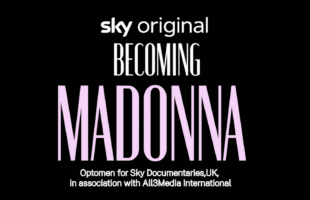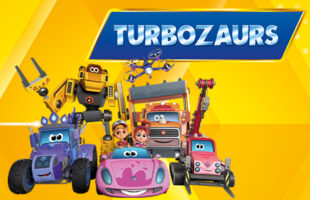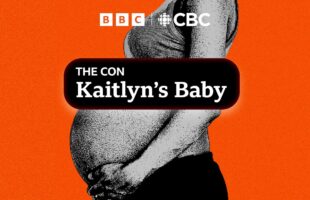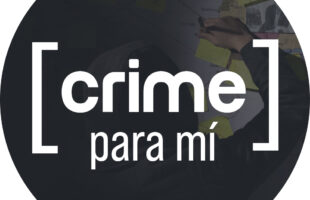Chee Kong Cheah, or CheeK as he is called, is going places.
The 2011 13-part drama/ musical/ cuisine series The Kitchen Musical (TKM), whom CheeK directed, co-wrote and executive-produced, won Gold for Best Writing and a Bronze for performance at the 2012 New York Festival; an intermedia-globe Gold Award at the 2012 World Media Festival (Hamburg); a nomination for Best Drama Series at the 2012 Monte Carlo Festival; and then there’s the coveted International Emmys on November 19, 2012, with nominations for Best Drama Series and Best Actor.
All these for just season 1, and there’s still plenty of life to the franchise beyond linear broadcast. To date, the multi-platform part drama, part musical (with recipes thrown in), has spun the following intellectual properties:
1. TKM soundtrack on itunes
2. Options for localised formats in Italy, Vietnam and the United States (Ben Silverman’s Electus producing and distributing)
3. Stage musical – by the Singapore Repertory Theatre in Singapore (in the works)
4. TKM movie in Indonesia (in development). CheeK, who executive-produces the film project, reveals that this would feature a local cast with popular Indonesian music, and is slated for theatrical premiere in Indonesia.
5. A real-life ‘Avilon’ (the fictional restaurant and principal set in the series). “Think of it as a place that you would like to go and hang out, a ‘lifestyle destination’ of sorts based on the theme of Drama. Music. Food. Lifestyle,” CheeK says. While not giving names, he tells me he’s had more than one restaurant operator who expressed interest. Judging by the delectable dishes the fictional Avilon has “served”, I’m inclined to believe the man.
In early October, CheeK emailed me to tell me about the two International Emmy nominations for TKM (he also has a third Emmy nod for The Challenger Muaythai which he consults for); the excitement barely containable over email.On November 19, hours after the awards ceremony in New York where 38 nominations from 15 countries were honoured (Singapore had three), CheeK sent me a text message that suggested much gratitude, despite not winning.
“We (TKM) were a crowd favourite but I still want to congratulate the winner (of Best Drama). This is the first time Singapore had three nominations and I am proud to be part of all three nominations. At this level, a nomination is already a win!”
Besides critical acclaim, TKM is also popular with the fans.
“Monte Carlo was a big stamp of approval in terms of the critics. I do not know who else in Singapore has gone to the Monte Carlo TV festival. It’s always been the powerhouses – the Japanese and the Koreans. For us, just to be nominated in the same platform as Game of Thrones, Downton Abbey or Antarctica (Japan’s TBS) is mind blowing. It’s nice to go there and have people say, ‘yeah, you’re from that musical right?’” CheeK also shares an anecdote about being “stalked” by eager locals at Monte Carlo, and get this, TKM has not even aired there yet.
Weeks before, I had visited CheeK’s relatively new office located at a mall in downtown Singapore. This was clearly just a tiny office space with some basic furniture for about four, with the majority of the floor space devoted to meeting areas with tall stools and tables – neither equipment nor post-production suite in sight. CheeK and I sat by the full-length glass window with a view of the cityscape that could quite easily lull any creative mind into creative lalaland. I enquired about the set up.
“This is a concept shop,” CheeK explains. “We really believe that the future in terms of the creative industry will hinge on probably not how big your company is or how many hundreds of people you have, but how good your ideas are.
For the concept shop to work, CheeK admits that the ability to produce pilots well in advance of any concept going into development is critical to securing interest. His many connections have helped sought out investors whom he credits to have a “longer-term view on their investments”.
“Every year we produce two new concepts. We take the funds and we’ll go into the creation of the pilot, and we do it really well. So for TKM, I sent the pilot to my connections in L.A., who were clearly impressed and thought the pilot was made for US$ 1m. When I initially started explaining TKM many go ‘what is this?’, so now I just show them. People will take you more seriously when you can show them.”
This business model, arguably, gives CheeK more creative control with commissioning editors.
“In our minds, the way to do it is to be small, to be creative, which allows us to be nimble and very flexible – you know, we can change when we need to and when we know that a concept or an idea is good – we can go ahead with it with full passion, without needing 20 signatures. So we agree on it, the investors say ‘cool, go with it’, we go ahead with it and the whole resources of the company goes with it.”
“We’ve short-circuited the system,” CheeK claims. “It’s not like we’re going to the commissioning editors and say, ‘what do you want now? We’ll make it for you.’ We’re not a production company. We don’t have to justify the hardware that we bought. We don’t have to justify the staff we have hired. We say very clearly, ‘This is our idea. The pilot is here. We’re going into production. Would you want it? If you don’t want it, it’s cool, because we’ll still roll it anyway.”
CheeK’s in no hurry for a season Two of TKM, although he tells me broadcasters have been asking. For now, he is soaking in all that the first installment has to offer, and continues to offer. The plan is to start scripting in 2013, with delivery of season Two targeted for 2014. CheeK has demonstrated that this IP can spin many ways and he’s quietly confident that the ball in his court.
“We’re keeping our options open. It’s good because you can fit where it goes best, and now they can trust us too because they’ve seen the product – four good songs per episode, 52 music videos at the end; you can do whatever you want to them. We’d cut the trailers for them also and they can adapt it or they want to, change it. It’s all there. We’ll provide all of that and we get to control the quality as well, and because you hold all rights, you make sure you control the quality, even in format sales. Then the broadcasters will go: “Cool, we got you. We don’t have to worry that the quality of the product is not good.”








